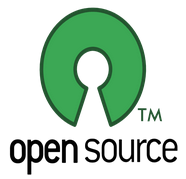
What does Open Source mean?
Open source is an expression generally used along with “software”, “community”. The Open Source designation applies to software licensed for free access to the source code produced. In short, the author of open source software is anyone to view, modify and distribute the code for any purpose.
This source code can then be used by developers wishing to either adapt it to their needs or refine it to integrate it into their information system. Its model contrasts with the proprietary software model which is much more restrictive. Users only have access to a closed version of the software and cannot view the source code. We find open source software dedicated to the vast majority of industries, including shared web hosting.
Differences from the free software :
Open source software is very often associated with free software. Open source solutions are more opened towards a collaborative development objective. On the other hand, free software is more an objective of defending individual freedoms. In the end, the former is based on the principles of free software. Nevertheless, the founders of the movement defined ten preconditions that a project must meet to be qualified as open source.
Why you need to choose an Open Source?
Open Source solutions offer many advantages, meeting the needs of individuals, SMEs and very large companies:
- It is not free, but it still costs less than proprietary software.
- They provide the opportunity to gain independence from the publishers of the solutions.
- They are flexible. Indeed, they are modular, and thus allow better integration into existing information systems.
- Its flexible nature allows it to remain efficient, much longer than proprietary software, which is less adaptable.
Some examples of software that can be useful to deploy your website
- Software for online store development: PrestaShop, WordPress with its Woocommerce extension.
- Others for the security of its online accounts: KeePass
- For creating and editing images: Gimp, Inkspace